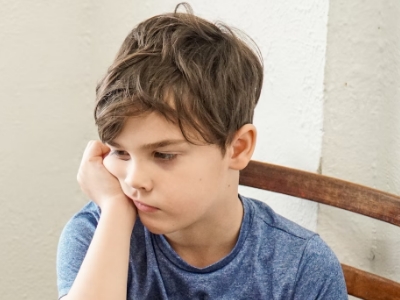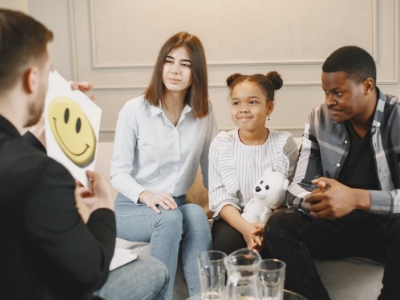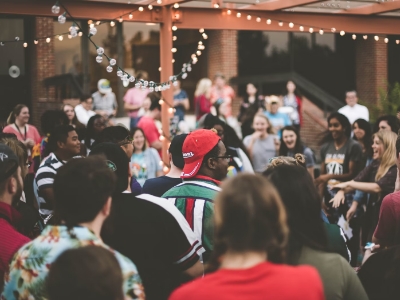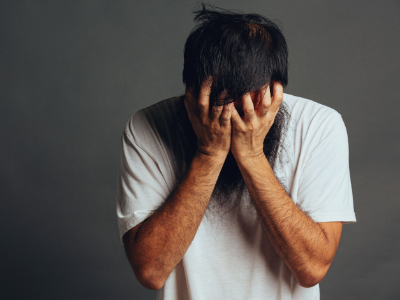Generalized Anxiety Disorder: Symptoms, Risk Factors, Causes, and Treatment
A person with a generalized anxiety disorder (GAD) experiences a heightened state of worry or anxiety for a long period without apparent reason. These feelings are uncontrollable; in most cases, the person is aware that their anxiety is unwarranted. For instance, even the thought of completing daily tasks can make them anxious. As with many other mental health issues, the exact cause is unknown. Even though there are many self-help techniques to manage the symptoms, it is important to consult a mental health professional to get a thorough diagnosis and learn the required treatment plan.
What is Generalized Anxiety Disorder?
Generalized anxiety disorder is common. It affects about 3% of the adult population. GAD can affect children and adults. The condition often begins in childhood or adolescence but may begin at any age. Women and people assigned female at birth are twice as likely to be affected by GAD as men and people assigned male at birth.
Signs and Symptoms of Generalized Anxiety Disorder

Generalized anxiety disorder symptoms can vary. They may include:
- Difficulty handling uncertainty
- Inability to let go of a worry
- Difficulty concentrating
- Persistent worrying or anxiety about several areas that are out of proportion to the impact of the events
- Fear of making the wrong decision
- Having trouble relaxing, feeling restless, and feeling alert or on edge
- Seeing situations and events as threatening even when they are not
Physical signs and symptoms may include:
- Fatigue
- Trouble sleeping
- Muscle tension or muscle aches
- Trembling, feeling twitchy
- Nervousness or being easily startled
- Sweating
- Nausea, diarrhea or irritable bowel syndrome
- Irritability
Even when your worries don’t consume you, you still feel anxious even when there is no apparent reason. If you feel that something bad is about to happen, you may worry intensely about your safety or the safety of the people you love.
You experience significant distress because of your anxiety, worry, or physical symptoms. A person’s worries can change over time and may change from one concern to another.
What Causes Generalized Anxiety Disorder?
A complex interaction between biological and environmental factors may contribute to generalized anxiety disorder, as with many mental health conditions.
- Genetics
- Differences in brain chemistry and function
- Differences in the way threats are perceived
- Development and Personality
Risk Factors for Generalized Anxiety Disorder
These factors may increase the risk of developing generalized anxiety disorder:
- A generalized anxiety disorder may run in families.
- A person with a timid or negative temperament or who avoids anything dangerous may be more prone to generalized anxiety disorder than others.
- Individuals with a generalized anxiety disorder may have a history of significant life changes and traumatic experiences during childhood.
Treatment, Management and Prevention of Generalized Anxiety Disorder

A lifestyle change can significantly affect people with anxiety disorders, even if they need psychotherapy or medications to control their anxiety. Here’s what you can do:
- Make sleep a priority. Do what you can to ensure you are getting enough sleep. If you are not sleeping well, see your doctor.
- Keep physically active. Develop a routine so you are physically active most days of the week. Exercise is a powerful stress reducer that may improve your mood and help you stay healthy. Start slowly and gradually increase the amount and intensity of your activities.
- Eat healthily. Healthy eating such as focusing on fruits, vegetables, whole grains, and fish, may be linked to reduced anxiety, but more research is needed.
- Use relaxation techniques. Visualization techniques, meditation and yoga, are relaxation techniques.
- Quit smoking and quit drinking coffee.
- Avoid alcohol and recreational drugs. These substances can worsen anxiety.
Medication can be used for anxiety:
- Buspirone – this medicine belongs to the chemical class of piperazine and azapirone. It is effective in the treatment of generalized anxiety disorders of moderate intensity. The drug works by changing the amounts of certain natural substances in the brain, which helps improve your mood.
How Does Childhood Depression Affect Growth?
The symptoms of childhood depression may vary. Most of these conditions are undiagnosed and taken for granted because symptoms are passed off as regular emotional and psychological changes. Although it is normal for children to feel sadness and irritability in some cases, persistent sadness may lead to melancholy.
What is Depression?
A mood disorder can cause sadness, irritability, or hopelessness. It can affect your sleep, appetite, or relationships with others. Sadness can also cause you to lose interest in hobbies or activities you once enjoyed. In severe cases, it can lead to thoughts of suicide. Although it is a serious medical condition, it is usually treatable.
How does Depression Affect Children?
The disorder can affect how children interact with friends and family. It may prevent your child from enjoying school, sports, hobbies, or other normal childhood activities. The condition often goes along with anxiety. Anxiety is a medical condition that causes fear, panic, or worries about everyday situations.
Sometimes, depression or anxiety in children gets chalked up to growing pains, but if you have any concerns about behavioral or mental health, talk to a healthcare provider. Early childhood depression alters brain development . The brains of children who suffer clinical conditions as preschoolers develop abnormally, compared with the brains of preschoolers unaffected by the disorder.
What are the Characteristics of Childhood Depression?

- Crankiness or anger
- Being more sensitive to rejection
- Thoughts of death or suicide
- Trouble during events and activities at home or with friends
- Feelings of worthlessness or guilt
- Changes in appetite, either increased or decreased
- Changes in sleep
- Vocal outbursts or crying
- Trouble concentrating
- Continuous feelings of sadness and hopelessness
- Social withdrawal
- Impaired thinking or concentration
- Fatigue and low energy
- Physical complaints
How Common is Childhood Depression?
Up to 3% of children and 8% of adolescents in the U.S. have dejection. The condition is significantly more common in boys under the age of 10. However, by age 16, girls have a greater incidence of this condition.
Treatment for Childhood Depression
Treatment for children with depression involves therapy and prescription medication. Some children may benefit from one of these, but doctors may also recommend a combination approach. These are not lifelong treatments. The treatment plan for childhood depression often depends on the severity of the symptoms. Fortunately, proper care can help your child find relief from their symptoms.
Medications such as Amitriptyline is an antidepressant typically prescribed to treat depression. It works by increasing a chemical called serotonin in your brain. It improves mood and can also change how your nerves receive pain signals, so the pain goes away.
Lifestyle and Homecare For Childhood Depression

- Make sure your child sticks to the treatment plan. Psychotherapy is an essential part of the treatment. Stopping may lead to the reoccurrence of the condition and may worsen withdrawal symptoms.
- Educate yourself about your child’s condition to empower you and motivate you to stick to the treatment plan. Please encourage your family to learn about depression to help them understand and support your child.
- Work with your child’s doctor or therapist to learn what might trigger the symptoms. Make a plan to know what to do if the symptoms worsen.
- Contact your doctor or therapist if you notice any changes in symptoms or how your child feels. Ask relatives or friends to help watch for warning signs.
- It may seem like alcohol or drugs lessen depression symptoms, but in the long run, they generally worsen symptoms and make depression harder to treat. If you have a teenager that engages in these activities, talk to a doctor or therapist to get help with alcohol or substance use.
- Ensure your child eats healthily, is physically active, and gets plenty of sleep.
- Sleeping well is essential for both physical and mental well-being. If your child is having trouble sleeping, talk to your doctor about what you can do.
What Causes Social Anxiety?
Social anxiety is also known as social phobia. It affects about 5.3 million people in the United States. The average age it begins is between ages 11 and 19 or the teenage years. In this condition, the fear is limited to one or two particular situations, like speaking in public or initiating a conversation. Others are very anxious and afraid of any social situation. The tough part is being able to ask for help.

People who have this condition may have trouble with any of the following:
- Talking to strangers
- Eating in front of other people
- Going to school or work
- Speaking in public
- Going to parties
- Dating
- Making eye contact
- Starting conversations
- Entering rooms
- Using public restrooms
What are the Causes of Social Anxiety Disorder?
- Genetic traits. You’re more likely to develop social anxiety disorder if your biological parents or siblings have the condition. However, it isn’t entirely clear how much of this may be due to genetics and how much is due to learned behavior.
- Negative experiences. There is a greater risk of social anxiety disorder for children who have experienced teasing, bullying, rejection, ridicule, or humiliation. In addition, other negative events in life, such as family conflict, trauma, or abuse, may be associated with this disorder.
- Having a condition that draws attention. Social anxiety disorder can be triggered by facial disfigurement, stuttering, or tremors caused by Parkinson’s disease.
- Brain structure. A structure in the brain may play a role in controlling the fear response. It may cause other people to have a heightened fear response, causing increased anxiety in social situations.
- Environment. It can also be a learned trait as some people may develop significant anxiety after an unpleasant or embarrassing social situation.

Symptoms of Social Anxiety
- Trembling
- Sweating
- Upset stomach or nausea
- Trouble catching your breath
- Fear of situations in which you may be judged negatively
- Worry about embarrassing or humiliating yourself
- Avoidance doing things or speaking to people
- Blushing
- Fast heartbeat
- Dizziness or lightheadedness
- Intense fear of interacting or talking with strangers
- Feeling that your mind has gone blank
- Muscle tension
- Avoidance of situations where you might be the center of attention
- Anxiety in expectation of a feared activity or event
- Intense fear or anxiety during social situations
- Fear that others will notice that you look anxious
Does Social Anxiety Affect Your Life?
It prevents you from living your life as you avoid situations that most people consider normal. You might even have a hard time understanding how others can handle them so easily. It also affects your personal relationships. It leads to low self-esteem, negative thoughts, low social skills, depression, and sensitivity to criticism.
If this condition keeps you from doing things you want or need to do, or from making or keeping friends, you may need treatment. Talk about your fears and worries with a doctor or therapist who has experience treating such conditions.
Why Should You Talk to a Professional?
Note that getting help from doctors does not mean that you are not normal. Your feelings are valid and you are not alone. Many people also experience the condition and experts can help you get through it. Talk to a professional to help you find solutions. Talk openly with your doctor about treatment to avoid depression, drug or alcohol problems, school or work problems, and a poor quality of life.
Treatment for Social Anxiety
The treatment depends on what causes the condition. A combination of medication and therapy would be a great help for your recovery. Psychotherapy improves symptoms and helps you learn how to recognize and change negative thoughts about yourself and develop skills to help you gain confidence in social situations.
Your doctor may also prescribe medcations such as anti anxiety, antidepressants, and beta blockers. Though several types of medications are available, selective serotonin reuptake inhibitors are often the first type of drug tried for persistent symptoms of social anxiety. To reduce the side effects, you may be instructed to start with a lower dosage.




